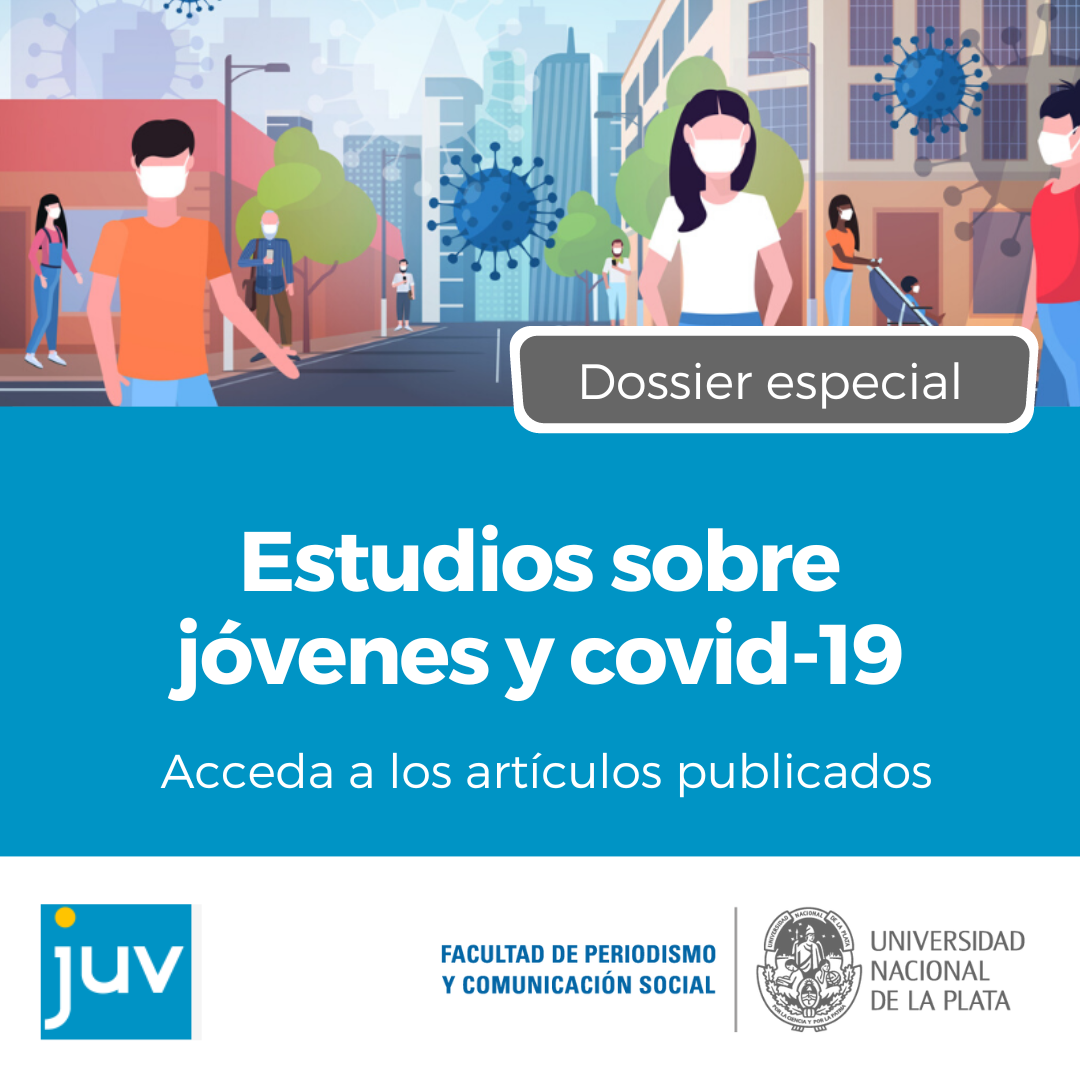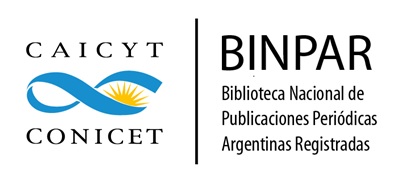Brazilian Evangelical Youth and their Cultural Practices in Lisbon
A Study on Laisure and Free Time (2019-2020)
DOI:
https://doi.org/10.24215/18524907e073Keywords:
youth, migration, young culture, cultural practicesAbstract
In this article we highlight different theories about youth, enabling a broad understanding about this category that can be analyzed from different perspectives, including cultural practices. The qualitative reserch explores the life stories of thirteen young Brazilian evangelicals, and addresses the problems related to the very category of youth seeking to understand the elements that make up cultural practices through a leisure time analysis, thus resulting in the emergence of seven categories of cultural practices of the subjects.
Downloads
Metrics
References
Adorno, T. (2002). Indústria Cultural e Sociedade. Paz e Terra.
Adorno, T. e Horkheimer, M. (1985). Dialética do Esclarecimento. Zahar.
Becker, H. (1994). Métodos de Pesquisa em Ciências Sociais. Hucitec.
Camarano, A. A. e Mello, J. L. (2006). Transição para a vida adulta ou vida adulta em transição? IPEA.
Coelho, T. (1989). O que é indústria cultural. Brasiliense.
Conde, I. (1996). Cenário de práticas culturais em Portugal (1979-1995). Sociologia, Problemas e Práticas, (23), 117-188. https://sociologiapp.iscte-iul.pt/pdfs/17/172.pdf
Dumazedier, J. (1974). Sociologie empirique du loisir: Critique et contrecritique de la civilisation du loisir. Éditions du SEUIL.
Dumazedier, J. (1976). Lazer e cultura popular. Perspectiva.
Feixa, C. y Nilan, P. (2009). Uma juventude global? Identidades híbridas, mundos plurais. Revista de ciências sociais-política & trabalho, (31), 13-28. https://periodicos.ufpb.br/ojs/index.php/politicaetrabalho/article/view/6818
Ferreira, V. S. (2008). Ondas, cenas e microculturas juvenis. Plural (São Paulo. Online), (15), 99-128. https://doi.org/10.11606/issn.2176-8099.pcso.2008.75231
Groppo, L. A. (2004). Dialética das juventudes modernas e contemporâneas. Revista de Educação do COGEIME, 13(25), 9-22. https://www.metodista.br/revistas/revistascogeime/index.php/COGEIME/article/view/629
Groppo, L. A. (2009). O Funcionalismo e a tese da moratória social na análise das rebeldias juvenis. Estudos de Sociologia, 14(26), 37-50. https://periodicos.fclar.unesp.br/estudos/article/view/1314
Groppo, L. A. (2010). Condição juvenil e modelos contemporâneos de análise sociológica das juventudes. Última década, 18(33), 11-26. http://dx.doi.org/10.4067/S0718-22362010000200002
Groppo, L. A. (2015). Teorias pós-críticas da juventude: juvenilização, tribalismo e socialização ativa. Revista Latinoamericana de Ciencias Sociales, Niñez y Juventud, 13(2), 567-579. https://revistaumanizales.cinde.org.co/rlcsnj/index.php/RevistaLatinoamericana/article/view/2014
Maar, W. L. (2008). Prefácio. En F. Durão, A. Zuin e A. Fernandes Vaz (Orgs.), A indústria cultural hoje. Boitempo.
Manheim, K. (1961). Diagnóstico de nosso tempo. Zahar. Montagner, M. Â. (2007). Trajetórias e biografias: notas para uma análise bourdieusiana. Sociologias, (17), 240-264. https://doi.org/10.1590/S1517-45222007000100010
Morin, E. (2002). Cultura de Massas no século XX Neurose. Forense Universitária.
Pais, J. M. (1993). Culturas Juvenis. Imprensa Nacional Casa da Moeda.
Pais, J. M. (1998). As “cronotopias” das práticas culturais do quotidiano. Observatório das atividades culturais, (4), 7-9.
Pappámikail, L. (2010). Juventude (s), autonomia e sociologia: questionando conceitos a partir do debate acerca das transições para a vida adulta. Sociologia: Revista da Faculdade de Letras da Universidade do Porto, (20), 395-410. https://ojs.letras.up.pt/index.php/Sociologia/article/view/2296
Poirier, J., Clapier-Valladon, S. e Raybaut, P. (1995). Histórias de vida. Teoria e prática. Celta Editora.
Ribeiro, C. A. C. (2014). Desigualdades nas transições para a vida adulta no Brail (1996 e 2008). Sociologia & Antropologia, 4(2), 433-473. https://www.scielo.br/j/sant/i/2014.v4n2/
Rodrigues Brandão, C. R. (1984). Participar-pesquisar. En C. Rodrigues Brandão (Ed.), Repensando a pesquisa participante (pp. 7-15). Brasiliense.
Rodrigues, D. e Silva, M. (2014). Imigração e pentecostalismo brasileiro na Europa: o caso da Igreja Universal do Reino de Deus. Revista Angolana de Sociologia, (13), 97-113. https://doi.org/10.4000/ras.1001
Sanchis, I. DE P. (2011). Simmel e Goffman: uma comparação possível. Estudos e Pesquisas em Psicologia, 11(3), 856-872. https://doi.org/10.12957/epp.2011.8340
Santos, R. (1992). A publicidade e a representação da juventude. UNICAMP.
Simmel, G. (1983). George Simmel: Sociologia. Ática.
Simmel, G. (2006). Questões fundamentais da sociologia: Indivíduo e Sociedade. Zahar.
Singly, F. (2005). Las formas de terminar y de no terminar la juventud. Revista de Estudios de Juventud, (71), 111-121. http://www.injuve.es/sites/default/files/revista71_9.pdf
Additional Files
Published
How to Cite
Issue
Section
License
Copyright (c) 2023 Kaique Cardoso, Donizete Rodrigues, Fabio Lanza

This work is licensed under a Creative Commons Attribution-NonCommercial-ShareAlike 4.0 International License.
The acceptance of an original by the journal implies the non-exclusive transfer of the patrimonial rights of the authors in favor of the publisher, who allows the reuse, after its edition (postprint), under a Creative Commons License Attribution-NonCommercial-ShareAlike 4.0 International.
According to these terms, the material can be shared (copy and redistribute in any medium or format) and adapted (remix, transform and create another work from the material), provided that a) the authorship and the original source of their publication (magazine and URL of the work) are cited, b) is not used for commercial purposes and c) the same terms of the license are maintained.
The assignment of non-exclusive rights implies that after postprint in Revista Argentina de Estudios de Juventud authors may publish their work in any language, media and format; in that case, it is requested that they signal that the material was originally published by this journal.
Assignment also entails the authors’ authorization for the work to be collected by SEDICI, the institutional repository of the Universidad Nacional de La Plata, and for it to be indexed in the databases that the publisher thinks appropriate for enhancing the visibility of the published work and its authors.
In addition, the journal encourages authors to submit their works to other institutional and thematic repositories after their publication in Revista Argentina de Estudios de Juventud, under the assumption that offering society unrestricted access to scientific and academic production contributes to a greater exchange in global knowledge.













.png)

























